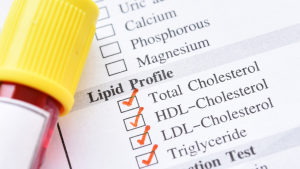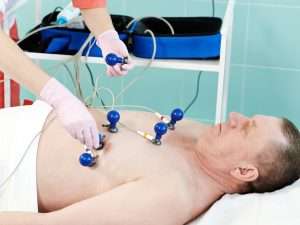Understanding POTS and Its Variants
Postural Orthostatic Tachycardia Syndrome (POTS) is a complex disorder of the autonomic nervous system characterized by an abnormal increase in heart rate upon standing. Although POTS is a single diagnosis, it encompasses several subtypes, each with unique underlying causes and symptom profiles. Understanding these differences is crucial for accurate diagnosis and developing an effective, individualized treatment plan, especially for patients in Dallas and the greater DFW area.
Different Types of POTS
POTS is classified into various subtypes based on its root causes. The most commonly recognized types include:
1. Neuropathic POTS
Neuropathic POTS is associated with impaired nerve function, particularly in the small fibers that control blood vessel constriction. This leads to poor regulation of blood flow, resulting in blood pooling in the lower extremities. Common symptoms include:
- Dizziness and fatigue
- Leg discomfort, including burning or tingling sensations
- Reduced blood flow regulation
2. Hyperadrenergic POTS
Hyperadrenergic POTS is characterized by elevated levels of norepinephrine in the bloodstream, leading to an overactive sympathetic nervous system. Patients often experience:
- High blood pressure upon standing
- Excessive sweating and tremors
- Increased anxiety and palpitations
This subtype frequently has a genetic component and may run in families.
3. Hypovolemic POTS
Hypovolemic POTS occurs when there is a reduced blood volume in the body, making it challenging to maintain proper circulation. This condition often presents with:
- Severe fatigue and dizziness
- Nausea and frequent headaches
Increasing fluid and salt intake (under medical supervision) is a common strategy to help manage symptoms in these patients.
4. Secondary POTS
Secondary POTS develops as a consequence of an underlying medical condition such as autoimmune disorders, Lyme disease, Ehlers-Danlos Syndrome (EDS), diabetes, or multiple sclerosis. In these cases:
- POTS symptoms manifest alongside the primary condition.
- Managing the underlying disorder is key to alleviating POTS-related symptoms.
5. Deconditioning POTS
Deconditioning POTS arises after a period of prolonged illness, bed rest, or inactivity, leading to a weakened cardiovascular system. Patients may experience:
- Exercise intolerance
- Gradual loss of physical strength
A gradual, structured rehabilitation program is typically recommended to help restore cardiovascular fitness and improve circulation.
Common POTS Symptoms and Treatment Options
While the subtypes vary, many POTS patients experience overlapping symptoms such as:
- Dizziness and lightheadedness upon standing
- Rapid heart rate (tachycardia)
- Fatigue and exercise intolerance
- Brain fog or cognitive difficulties
- Gastrointestinal disturbances (nausea, bloating, constipation)
- Temperature regulation issues and abnormal sweating patterns
Treatment Approaches at The Heartbeat Clinic
At The Heartbeat Clinic in Dallas, our POTS specialists tailor treatment plans to each patient’s specific subtype and symptom severity. Options may include:
- Lifestyle Modifications:
- Increasing fluid and salt intake
- Avoiding prolonged standing
- Wearing compression stockings to improve circulation
- Medication Management:
- Medications to help regulate heart rate, blood pressure, and fluid balance
- Physical Therapy & Exercise Programs:
- Customized, gradual exercise routines designed to improve cardiovascular health and endurance
- Dietary Recommendations:
- Nutrient-rich diets to support autonomic function and overall hydration
- Ongoing Monitoring & Support:
- Regular follow-ups to adjust treatment plans based on individual progress
Conclusion
Understanding the different types of POTS is essential for accurate diagnosis and effective management. Each subtype presents unique challenges, requiring specialized medical care tailored to the individual. If you are experiencing POTS symptoms in Dallas or the surrounding DFW area, consulting with a POTS specialist at The Heartbeat Clinic can help you develop a personalized treatment strategy to enhance your quality of life.
Book an appointment today—Contact Us to schedule your consultation and start your journey toward better health!
Frequently Asked Questions (FAQs)
- How are different types of POTS diagnosed?
A POTS specialist typically uses tests such as tilt table testing, heart rate monitoring, blood volume assessments, and autonomic function testing to determine the specific subtype. - Can an individual have more than one type of POTS?
Yes, some patients may present with overlapping symptoms of multiple POTS subtypes, requiring a comprehensive treatment approach. - Which type of POTS is most common?
Neuropathic and hyperadrenergic POTS are among the most frequently diagnosed subtypes. - Is hyperadrenergic POTS hereditary?
Genetic factors can play a role in hyperadrenergic POTS, and it may run in families. - Can POTS be cured?
There is currently no definitive cure for POTS, but proper management can significantly reduce symptoms and improve daily function. - What are effective treatments for neuropathic POTS?
Treatments often include nerve function support, gradual exercise programs, and medications that help regulate blood flow. - Does exercise benefit POTS patients?
Yes, a gradual, supervised exercise program can improve cardiovascular conditioning and reduce symptom severity. - How does hydration affect POTS symptoms?
Maintaining proper hydration helps increase blood volume, thereby stabilizing heart rate and reducing dizziness, especially in hypovolemic POTS. - What distinguishes secondary POTS from primary POTS?
Primary POTS occurs independently, while secondary POTS is associated with another underlying medical condition. - Where can I find a POTS specialist in Dallas?
The Heartbeat Clinic offers specialized diagnosis and treatment for POTS in Dallas. Contact us today to schedule a consultation and explore personalized treatment options.
Disclaimer
This content is for informational purposes only and is not a substitute for professional medical advice. Always consult a qualified healthcare provider or POTS specialist before making any changes to your treatment plan.






